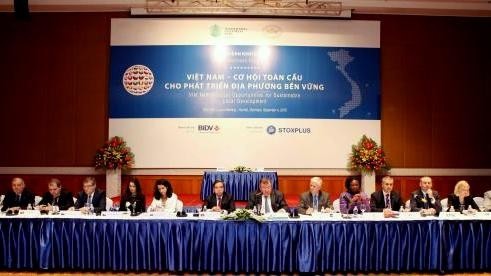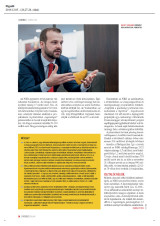International Investment Bank opens council meeting in Hanoi
Source: Nhandan
Addressing the conference, World Bank country director Victoria Kwakwa said the IIB has affirmed its role in providing better support for the private economic sector, contributing to economic development in its member countries including Vietnam.
Governor of the State Bank of Vietnam Nguyen Van Binh noted that after 45 years of operation, the IIB has developed into a modern international financial organisation meeting global standards.
Vietnam joined the IIB in 1977 with the committed charter capital of EUR4.7 million (US$5.1 million), equivalent to 1.21% of the bank’s total charter capital.
The IIB has granted a EUR15 million (US$16.3 million) credit to the Vietnam Joint Stock Commercial Bank for Industry and Trade (VietinBank) and is finalising procedures for a US$20 million loan for the Bank for Investment and Development of Vietnam (BIDV) to support small-and medium-sized enterprises (SMEs).
It has also supported a number of big projects in Vietnam relating to infrastructure and energy fields and plans to increase commercial assistance activities to facilitate Vietnam’s external economic co-operation.
The bank suggested issuing bonds in Vietnam, which will mobilise capital to re-invest in socio-economic development projects in the country.
Governor Nguyen Van Binh pledged that Vietnam would continue to be an active and responsible member of the IIB and support the bank’s restructuring.
The IIB was established in 1970. Its members include Bulgaria, Hungary, Vietnam, Cuba, Mongolia, Rumania, Russia, Czech, and Slovakia.
Meanwhile, the business forum organised by the SBV and the IIB focused on promoting growth through supporting SMEs and seeking international partners for regional development in Vietnam.
Chairman of the Vietnam Association of SMEs Cao Si Kiem said Vietnamese SMEs are restructuring business production and boosting the use of science and technology to reduce production costs, and increase labour productivity and products’ added values to increase competitiveness of goods and services in the region and beyond.
However, local SMEs are facing a lot of challenges such as limited financial resources, out-dated technology, unskilled workers, lack of information on the market, and shortcomings in business management.
He urged each business association to weigh their weak and strong points to build a proper marketing strategy.
The support of the State is indispensable to reform the market economy institution, improve administrative procedures and business environment, he added.


